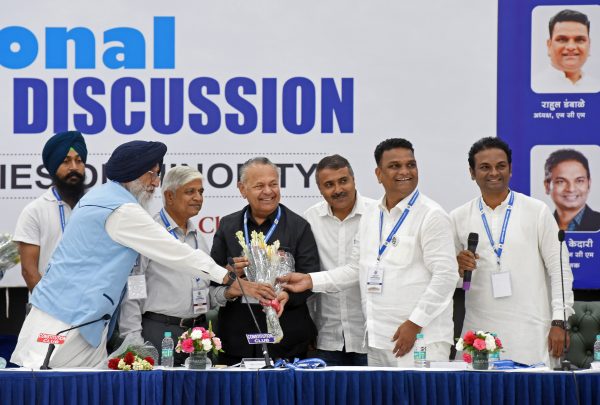Every few years, India engages in a furious but futile ‘debate’ on the Uniform Civil Code (UCC). Proponents of a UCC seek to replace India’s religious and customary laws governing marriage, divorce and inheritance with one code that applies to all communities. Opponents question the need for the code and argue that it would destroy India’s diversity.
The latest debate was triggered by Indian Prime Minister Narendra Modi, who stressed the need for a UCC to Bharatiya Janata Party (BJP) party workers in June 2023. Before this, the 22nd Law Commission of India issued a public notice seeking comments on the UCC. This came as a surprise given the 21st Law Commission, after many months of public discussion, concluded that a UCC was ‘neither necessary nor desirable at this stage’. The 22nd Law Commission’s primary justification for the re-examination was that more than three years had passed since the previous report.
While Article 44 of the Constitution mandates that ‘the state shall endeavour to secure the citizen a Uniform Civil Code throughout the territory of India’, this is a non-binding state policy objective. Some members of the Constituent Assembly have sought for it to be a justiciable ‘fundamental right’ but the idea was met with opposition, primarily from the Muslim members of the Constituent Assembly, who feared it would dilute the rights of religious minorities in India.
The campaign for a UCC has been core to Modi’s BJP since the 1980s, repeatedly featuring in their manifestoes over the years. The conservative, Hindu nationalist BJP’s demand for the UCC is also fuelled by the perception that previous Indian National Congress governments appeased Indian Muslims by refusing to reform Sharia Law in the same way Hindu law was reformed in the 1950s.
There is also demand for a UCC from certain sections of the women’s rights movement in India since the 1930s, though this position has been re-examined of late.
Yet there remains a void at the heart of this debate due to a lack of detail. No one quite knows what a UCC would look like and how it would address the complex political and constitutional issues concerning personal laws in India.
Religious and tribal identity determines which set of personal laws an Indian is governed by. Hindus are governed by four laws passed by India’s Parliament in the 1950s, which constitute the ‘Hindu code’. These laws were the culmination of a political movement to codify and modernise Hindu law, granting women important rights denied under customary Hindu law. Similarly, Muslims in India are governed by Sharia Law in matters of personal law, as acknowledged by the 1937 Shariat Act.
Yet personal laws are convoluted in their application. The Hindu code not only applies to communities that are not Hindu — such as Sikhs, Jains and Buddhists — but also excludes some communities that do practise Hinduism. The Hindu code only applies to India’s tribal communities if the government chooses to extend it, even if these tribes practice some form of Hinduism.
The exclusion of tribal communities from statutory Hindu law is a recognition of their special status under the Constitution. The Constitution was amended after independence to accord special status to certain tribal-dominated northeastern states, exempting these states from the application of personal laws made by Parliament.
The Hindu code preserves certain unique features of Hindu personal law, such as the concept of a ‘joint family’. A Hindu has a share in the family’s ancestral property as a birthright, which entitles them to maintenance through such property and to seek partition of the property in court. This right was only available to Hindu men but an amendment in 2006 expanded coverage to Hindu women.
A UCC will need to account for the complexity of India’s religious and tribal identities and answer some sensitive political questions. Lawmakers will need to decide whether to abolish the unique features of Hindu law along with those of other legal systems and if tribal communities will be forced to follow a system of law they never asked for and do not want. These are difficult questions that any UCC will need to address and without a draft currently available, it is unclear how a UCC will be politically acceptable.
Many aspects of religious and customary law need statutory reform to clarify the rights and duties of all parties, remove discrimination against women and recognise same-sex relationships. And while supporters of a UCC insist that uniformity will address these problems, the lack of detail on how that will happen in practice hinders their case. In the absence of a cogent draft of a UCC from the Union Government, this debate will continue to be divisive and unproductive.
Alok Prasanna is Co-Founder and Lead at Vidhi Centre for Legal Policy, Karnataka.

